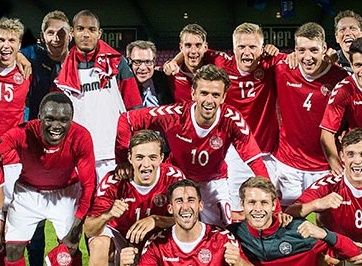The Danish under-21 football team is reaping the benefits of its successes in recent years.
The Danes were top seeds going into the Euro 2019 qualification draw today, where they managed to avoid any dark horses, drawing Poland, Finland, Georgia, Lithuania and the Faroe Islands to make up Group 3.
“It looks like a very reasonable draw, where Poland looks like the nation that will cause us the most trouble,” said a pleased coach, Niels Frederiksen.
“They did okay with the group during their latest under-19 Euro qualification and they are a solid footballing nation. But as we avoided Russia and Turkey from the third seed pot, and the Netherlands and Croatia from the second seeds, I can only be satisfied.”
READ MORE: Denmark under-21s handed group of death
Euro 2017 beckons
Denmark, who face Italy, Germany and the Czech Republic in this summer’s Euro 2017 in Poland, will start their Euro 2019 qualification campaign away to the Faroe Islands on September 1, before hosting Lithuania four days later.
Following a recent expansion from eight to 12 teams, the nine group winners will qualify automatically for the finals along with hosts Italy, while the four runners-up with the best records against the teams first, third, fourth and fifth in their group will play each other over two legs for the remaining four places.
See all the qualification groups in the Euro 2019 draw here.














